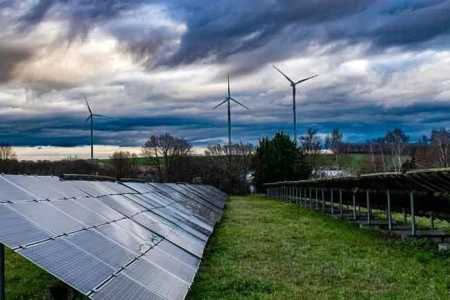Earth Experiences Warmest January on Record

In an alarming sign of the growing impacts of climate change, recent reports reveal that Earth experienced its warmest January on record in 2025. The data, collected by global meteorological agencies, shows that average temperatures for the first month of the year exceeded previous records by a significant margin. This unprecedented warmth is a stark reminder of the accelerating pace of climate change, raising concerns about the future of our planet’s ecosystems, weather patterns, and human societies.
A New Temperature Milestone
January 2025 broke the previous records for warmth, which have been steadily increasing over the past several decades. This marks the latest in a series of temperature records that have been shattered year after year, as the effects of global warming continue to intensify. According to experts, this milestone further solidifies the growing scientific consensus that human-induced climate change is driving the planet toward a hotter future.
The warmth in January was not limited to any one region but was felt across the globe. In some areas, temperatures were up to 2°C (3.6°F) above the long-term average, pushing climate records into new territory. Unseasonably high temperatures were recorded in polar regions, including the Arctic, where average temperatures have been rising at more than twice the global rate in recent decades. This extreme warmth in the Arctic has profound implications for ice sheets and sea level rise, with scientists warning that the continued melting of glaciers could contribute to more severe coastal flooding in the future.
The Role of Human Activity
The main driver behind this alarming trend is human-induced climate change, which is primarily caused by the burning of fossil fuels like coal, oil, and natural gas. These activities release large amounts of greenhouse gases, such as carbon dioxide (CO2), into the atmosphere, trapping heat and disrupting natural weather patterns. As a result, Earth’s average surface temperature has increased by about 1.2°C (2.2°F) since the late 19th century, and the rate of warming has accelerated in recent decades.
The warm January also coincides with the continuing effects of El Niño, a weather phenomenon that results in a natural, short-term increase in global temperatures. However, experts are quick to note that while El Niño plays a role in short-term temperature fluctuations, the long-term trend of rising global temperatures is overwhelmingly due to human activity. The combined influence of greenhouse gas emissions and natural climate cycles creates a dangerous feedback loop that is destabilizing the planet’s climate.
Widespread Impacts on Weather Patterns
The record warmth of January 2025 is not just a statistical anomaly but a harbinger of more extreme weather events to come. Warmer temperatures lead to more frequent and intense weather extremes, including heatwaves, wildfires, droughts, and heavy rainfall events. These changes are already being felt around the world.
For instance, higher temperatures increase the likelihood of heatwaves, which have been sweeping across various parts of the globe with increasing frequency. In regions like Southern Europe, the Middle East, and parts of North America, January’s unseasonable heat contributed to dangerously high temperatures, resulting in significant health risks for vulnerable populations.
Similarly, the rise in temperatures exacerbates wildfires, as dry conditions are further intensified by unseasonably warm weather. In countries like Australia and the U.S., the summer fire seasons have become longer and more destructive, fueled by rising temperatures and changing precipitation patterns.
Additionally, warmer ocean temperatures are contributing to more powerful and unpredictable storm systems, including tropical cyclones and hurricanes. These storms are capable of causing widespread destruction and displacing millions of people, especially in coastal areas that are already at risk from rising sea levels.
The Urgent Need for Climate Action
The record-breaking temperatures in January highlight the urgent need for decisive global action to mitigate the impacts of climate change. Governments around the world must take immediate steps to reduce greenhouse gas emissions, transition to renewable energy sources, and implement policies that promote sustainability and climate resilience.
International agreements like the Paris Climate Accord are key frameworks for guiding global efforts to limit global temperature rise to well below 2°C, ideally aiming for 1.5°C. However, current policies and actions are not sufficient to meet these goals. To avoid the most catastrophic effects of climate change, the world must urgently accelerate its efforts to reduce emissions, shift to cleaner energy sources, and adapt to the inevitable changes already underway.
At the same time, individuals and communities can play a role by adopting more sustainable lifestyles, supporting policies that address climate change, and taking part in local initiatives to reduce their carbon footprints. From energy efficiency improvements to sustainable transportation choices, every action can contribute to a larger collective effort to curb global warming.
The Road Ahead
The warmest January on record is yet another reminder that the climate crisis is no longer a distant threat—it is happening now. The extreme heat and weather disruptions experienced in January 2025 signal that we are on the brink of a new climate reality, one that will require unprecedented global cooperation and innovation to navigate.
While the challenges ahead are daunting, the window of opportunity to mitigate the worst impacts of climate change is still open. By taking immediate, bold actions, we can work to limit further warming and create a more resilient, sustainable future for generations to come.









